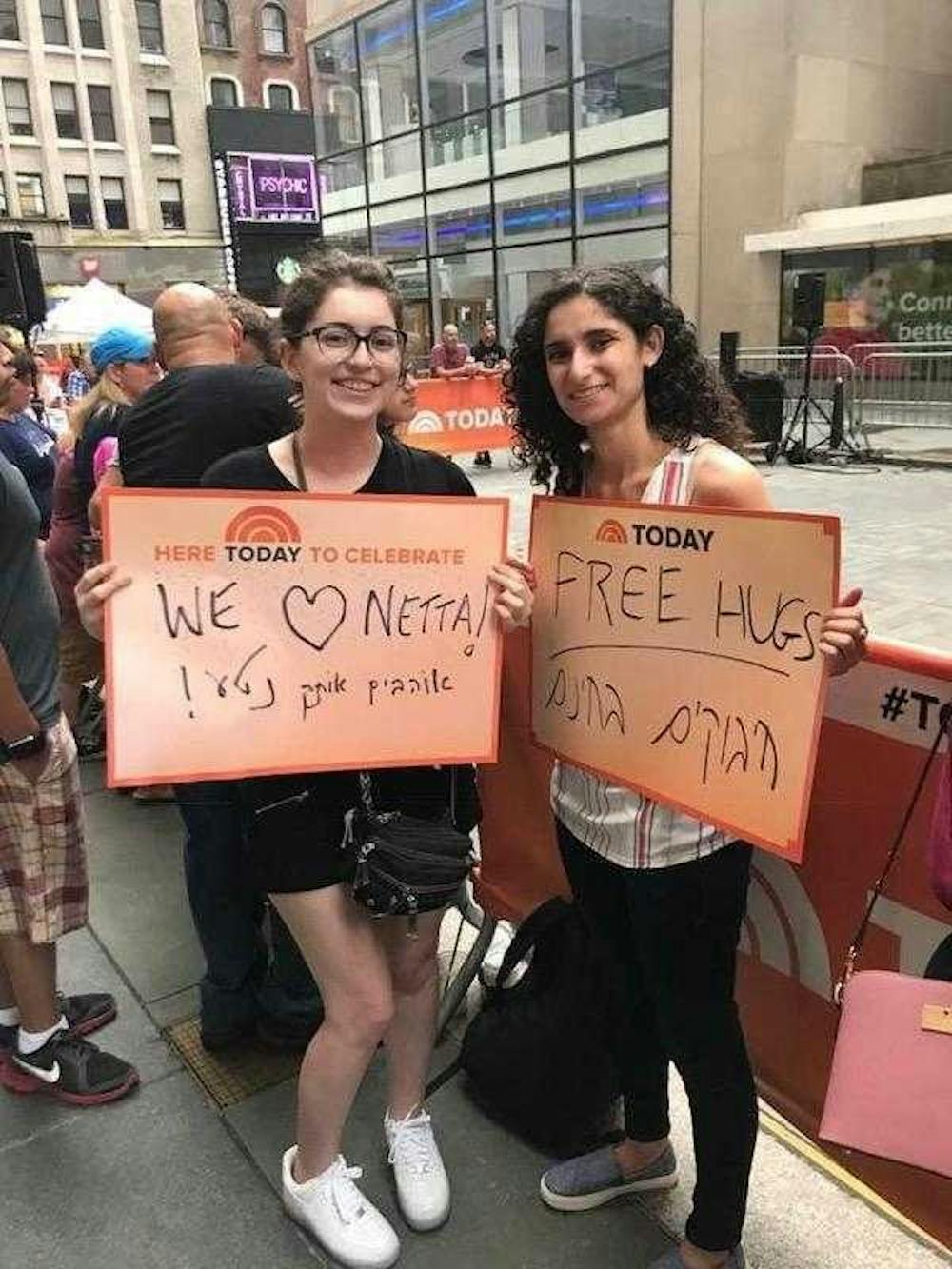I’m not an obsessive for many TV shows, with one exception: the Eurovision Song Contest.
Criminally underrated in the U.S., Eurovision is an annual arcade of countries and songs. Set up like a combination of the Olympics and American Idol, Eurovision is my annual fairytale. Each year, various European (and guest) nations toy with songs and artists until they come up with a perfect performance.
The goal: a song that inspires euphoria among both a jury of musical experts and the public around the world. The winning country rises like a phoenix from the rest, and then hosts the contest a year later. Some regard the Eurovision process as a joke; others treat their countries’ winners like heroes.
If it wasn’t clear, I fall firmly into the second category. (It should be obvious, as I not-so-subtly included six winning song titles in that last paragraph.)
I’ve been a massive Eurovision fan since 2017. Though Salvador Sobral’s first-place entry wasn’t my favorite (Hungary’s Joci Papai has my heart), the contest itself grabbed me. There’s plenty to get excited about. The music, the languages and finally understanding the origin of a Ukranian dance I’d learned in Jewish summer camp for unknown reasons were just the tip of the iceberg.
The Netherlands, which won 2019’s Israel-hosted contest, has spent all year prepping for their own turn. The contest, which attracts well over 180 million TV viewers and thousands of in-person attendees, is a huge tourism draw. The Netherlands was particularly excited — winner Duncan Laurence brought Eurovision back for the first time in 44 years.
However, due to the ongoing pandemic, there will be no competition this year. The Netherlands will host next May, and artists are allowed to return if their countries re-select them. But their songs are ineligible.
The decision, though tough for an obsessive like me, is one that is absolutely necessary. Some fans were eager for a virtual concert, or a competition in a closed arena. But the energy and pride that emanates from the audience would be missing in either case. Eurovision is not Eurovision without the fans.
Fortunately, Eurovision recognizes what its fans want. Beginning on April 3, the Eurovision YouTube channel has been releasing weekly Eurovision Home Concerts.
Every Friday, the channel invites viewers to listen to contestants performing from their homes. The exciting lineup features contestants from the past. It also features contestants who were supposed to perform in 2020, offering a semblance of the international platform they were promised.
So far, three Eurovision Home Concerts have been released. I wasn’t sure what to expect when I began episode one. I was mostly mourning the cancelled Rotterdam concert. But as is usual with Eurovision, I was quickly sucked in.
The idea is simple, but brilliant. Perform your own songs, which are either beloved, forgotten or so bad they’re infamous now. And then perform another song chosen by the fans.
With regards to the first half, it’s lovely to see my favorite artists again. The glow-ups are absolutely real. Lake Malawi, who performed for the Czech Republic last year, look much better without their Wiggle attire. Slavko, whose “Space” is a cringe-inducing guilty pleasure, looks much less foolish without a six-foot-long braid.
But it’s the second aspect of the Home Concerts that is truly inventive. It allows fans and contestants to appreciate the history of the concert in a completely new way. Jamala, my all-time favorite Eurovision winner, was a delight while performing her 2016 hit, “1944.” But when she sang last year’s winning entry, “Arcade,” I was impressed at the new level of emotion she brought to the song, so different from Laurence’s version.
One of the benefits of the Home Concerts: It offers a new perspective on both Eurovision artists and on Eurovision songs. For many of the performers, who had flashy lights, backup dancers and wild sets during their big performance, a stripped-down version of their songs is immensely beneficial. Tamara Todevska (North Macedonia’s 2018 rep) showed that she needs nothing more than her voice with her basic rendition of “Girl.” Never a huge fan of the song, I was nearly brought to tears as she stared into the camera and sang her heart out.
I was likewise impressed when Denmark’s Leonora performed 2010 winner, “Satellite.” Leonora’s own “Love is Forever” is one of my least favorite entries — it ranked third from the bottom in my notes last year. But her performance of another song showed that it’s not a lack of skill on her part. The artist is talented; she just needs the right track to show it.
The competition aspect of Eurovision has dominated the concert over recent years. Countries turn the contest into a massive money-making enterprise, with some producing months of competition just to select a Eurovision representative. I’ve got no complaints about this. For weeks, I followed Israel’s Next Star to Eurovision contest. I said it was a way to practice my Hebrew, never mind that half of the songs are in English.
But the tone of Eurovision Home Concerts is different. The vibe is personal. It really feels like the stars are doing it just for the fans, to give them something after months of anticipation. Performers chose to participate not for their own fame, but because they care about the millions who love their songs. It’s more than a worthy replacement for the cancelled competition.
And if missing the standard Eurovision concert is too tough to handle? Well, Eurovision knows that too much isn’t enough for the fans. They’re offering “Eurovision: Europe Shines a Light,” a non-competitive honoring of the 46 songs that don’t get to compete, during the original concert airtime. Download your VPN now. As Loreen said in 2012, we’re going up, up, up, up, up, up.





